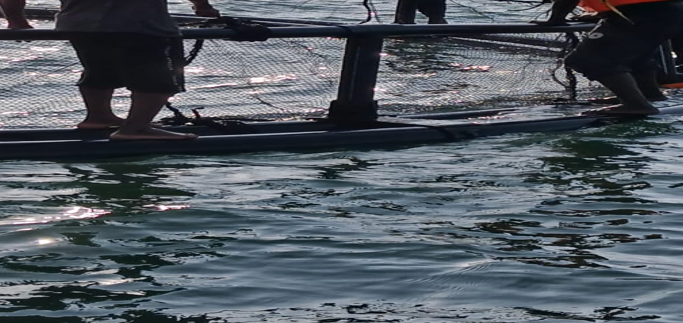
Homa Bay-based aquaculture firm, Take Farm Ltd, has raised concerns with the National Environment Management Authority (NEMA) over potential encroachment by a non–local company.
In a formal letter addressed to the regulator, Take Farm sought assurances that its operations around Nyagwethe, Juidendi, and Ngeri beaches in Homa Bay County will be protected from interference.
Having invested over Sh300 million into its cage farming operations, Take Farm’s CEO Jimmy Sakhasia expressed concern that a non-local farm expansion plans could threaten the biosecurity of its aquaculture production zone (APZ).
"We request that our biosafety and biosecurity buffer zone be protected from encroachment and that the other farm’s activities should not interfere with our operations," Sakhasia said in the letter, seen by the Star.
Cage farming in Lake Victoria has rapidly gained popularity as a sustainable alternative to traditional fishing methods, with Take Farm Ltd being the largest locally-owned player.
The farm, alongside others, has played a pivotal role in boosting fish production in the region, helping the country meet its growing fish quotas and address food security challenges.
Lake Victoria, which has historically been plagued by overfishing, has seen a resurgence in fish stocks due to the adoption of cage farming.
This method allows for controlled fish breeding and harvesting, helping to prevent the depletion of the lake's resources.
By focusing on sustainable aquaculture, the sector has not only created jobs but also reduced pressure on wild fish populations, ensuring the ecosystem’s long-term health.
The Kenya Marine and Fisheries Research Institute (KMFRI) has lauded cage farming for its role in conserving fish populations, calling it a "model of sustainable aquaculture" that can support national food security.
However, KMFRI has emphasized the importance of strict adherence to zoning regulations and quotas to ensure that cage farming remains environmentally friendly.
There is growing advocacy for prioritizing local players in the allocation of production zones.
Local ownership, stakeholders say, not only boosts the Kenyan
economy but also ensures that profits and resources remain within the country.
Proper enforcement of zoning limits and quotas seeks to protect the sustainability of Lake Victoria’s fisheries and prevent
potential conflicts between firms.
Take Farm’s concerns highlighted the need for NEMA to prioritize the interests of local businesses and safeguard the future of sustainable cage farming in Kenya.

